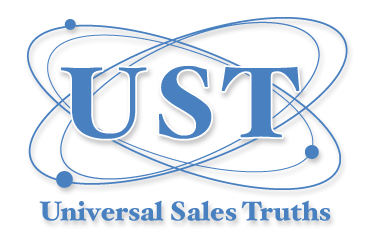You have qualified your prospect and placed him on your sales forecast. Your sales manager asks you why you feel strongly that your deal will close this month and you go through the logical reasons you have forecasted the transaction. Most likely they include some of these:
- The prospect has a genuine need for your product
- Your proposal will save him money
- Your proposal will increase his revenue by X
- Money is already allocated in the budget for the acquisition
- Your key contact has told you the deal is yours
- The competition does not match up to your proposal
While all of these criteria are critical, they are only the first level of qualification. This is particularly true for a very large or mission-critical decision. In other words, if you cannot check off all or most of these bullet points, then you should not even consider putting the account on your forecast. For complex and long-term sales campaigns it is important to take your qualification to the next level. Simply because the prospect is legitimate and will make a decision does not mean he should be on your sales forecast. The last thing we should be doing is wasting valuable selling time on prospects that we have a minimal chance of closing.
In my discussions with seasoned sales managers and sales execs, this is a very common blind spot. The sales forecast typically has prospects on it that are qualified to buy, but not necessarily qualified to buy from the company the sales rep represents.
And what I mean by fully qualified is that they have not passed the test of the second level of qualification. The second level of qualification is more difficult. The reason is it requires you to dig deeper within the account to answer this question: If you execute a flawless sales campaign, will you win the business? I say this somewhat tongue-in-cheek, but the point is we need to uncover potential roadblocks or obstacles as early on as possible that will derail our sales campaign. We certainly don’t want to spend several months of selling time dedicated to a prospect that we didn’t have a chance of doing business with. Our selling time is much too valuable. In addition, if the sales opportunity is large, you will most likely be deploying significant corporate resources to win the transaction. If the deal is lost and it becomes apparent that you missed some important facts, you will not be viewed by management in a very positive light. In fact the next time you ask for significant resources to bring in a large deal, you might get some pushback.
I believe part of the problem lies with sales management. Management is typically looking for a sales forecast that is chock-full of qualified prospects. So the sales exec feels it is necessary to include accounts that are not fully qualified in order to fill up their pipeline. In many cases both salespeople and sales managers feel good about a forecast with a large number of prospects, regardless of the likelihood of closing! We confuse activity with productivity.
In order to qualify your sales opportunity to the second level you must be sure to ask all the tough questions to every person in the decision-making chain. They should all be in sync with the value your proposal offers and, this is a big and, be willing to do business with your company. I say this because your product or service may be a perfect fit, but if there is reluctance to sign a contract with the company you represent, your deal will be stalled. There might be some negative history, a concern about long-term stability, or in some cases the competing salesman is the son-in-law of the decision-maker! You are much better off finding out these facts sooner rather than later.
Some reasons why you will never win the deal might be:
- High-level corporate relationships between your prospect and your competitor
- Long-term relationship with your competitor’s sales exec
- Prior history that your prospect can’t get over
- Concern about the long-term viability of your company or support
- For some reason you are not viewed as a trusted advisor
- You are getting negative feedback from a person in the decision-making chain
- Your proposal is simply not compelling enough to get them to deviate from “business as usual,” and therefore they are not willing to change the status quo
The list goes on and on. The art of qualification takes years to perfect, and certainly will never be totally perfected. However, the better you get at it, the more time you will spend on accounts that you will have the best chance of closing. And conversely, the less time you will spend with accounts that you had little chance of winning.
At the end of the day, our time is the most valuable resource we have, so do your best to use it wisely.
UNIVERSAL SALES TRUTH #1
Surround yourself with successful people of integrity
Proverbs 16:16
Get wisdom — it’s worth more than money;
choose insight over income every time
Proverbs 28:26
If you think you know it all, you’re a fool for sure;
Real survivors learn wisdom from others
